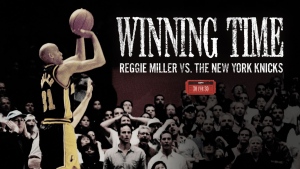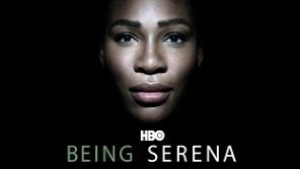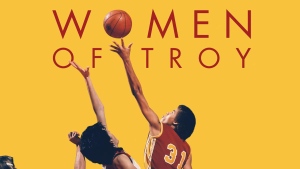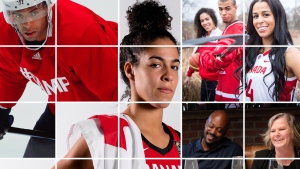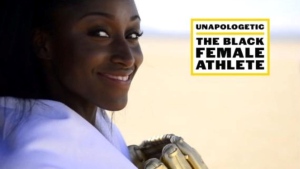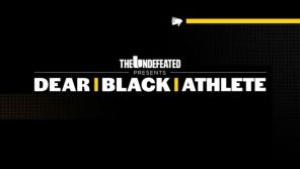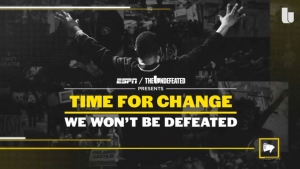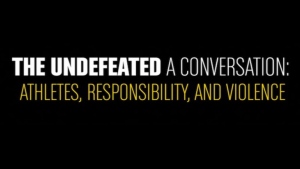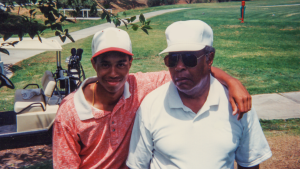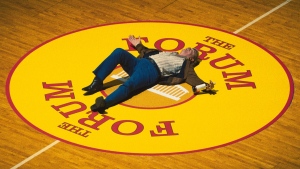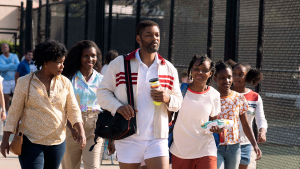Mar 31, 2022
Jason Terry is ready for his opportunity
NBA champion Jason Terry joins The Shift to talk about his coaching career, being a part of Isaiah Thomas and Nik Stauskas' path back to the NBA and flying with Kevin Garnett.
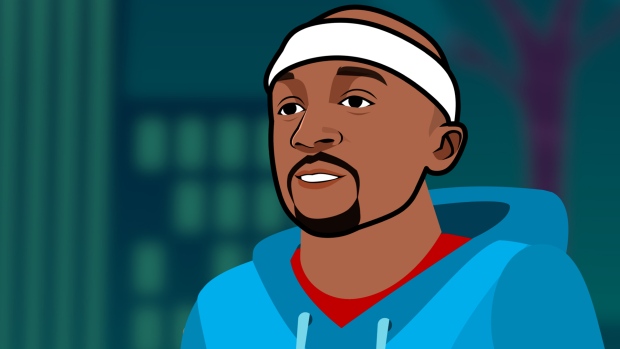
Over his 19 years in the NBA, Jason Terry was as deadly a sharpshooter as there was in basketball. He became the NBA's Sixth Man of the Year in 2009, a champion with the Dallas Mavericks in 2011 and one of the league's all-time leaders in three-point shooting through great synergy with All-Star teammates such as Dirk Nowitzki or Kevin Garnett and more generally being unflappable in will and confidence.
These days, Terry focuses more of his energy on putting other players in position to succeed. As the head coach of the Grand Rapids Gold — G League affiliate to the NBA’s Denver Nuggets — he has coached a surprising number of the league’s veteran players trying to break back into the NBA. Isaiah Thomas, Nik Stauskas and Lance Stephenson, among others, have inked full-time contracts after playing for the Gold. In conversation, Terry talks about these like personal victories. It was “the ultimate joy” to support Thomas, a fellow Seattle basketball export and as good as family, in his long-running comeback effort. Likewise when it came to convincing Stauskas, a career journeyman, back from the brink.
“Look, come play for me. I’mma get you all the shots you need. You know, I was a shooter in the league,” Terry told Stauskas. “One thing I can do is put you in a position where your skills will be showcased.”
Like the fourth quarter killer he used to be, Terry knows he can do this. His own ambitions are bigger and beyond. This is his first season in a head coaching role — he was an assistant last year with the NCAA’s Arizona Wildcats — but after his success in the G League this year, it wouldn’t be surprising to see him on the fast track forward. Seven of the NBA’s eight coaching vacancies last offseason were filled by Black coaches, which was a development in the right direction, but the league’s coaching ranks have historically trended white and in favour of retread candidates instead of the new. You hear Terry tell it, he just needs the opportunity.
“There’s a lot of candidates that get jobs that have been recycled through the system, and whether they’ve failed where they were previously or they succeeded, the new candidates don’t get an opportunity. Someone like myself who obviously is a champion, who obviously can excel in these positions, the knock is, ‘You don’t have the experience,’” says Terry. “Well, the only way you can gain experience in anything is life is experience itself.”
A few weeks ago, Terry spoke with The Shift about opportunities for Black coaches, being a part of his players' comeback stories as well as his new role as head of athletic performance for the virtual training company FlexIt.
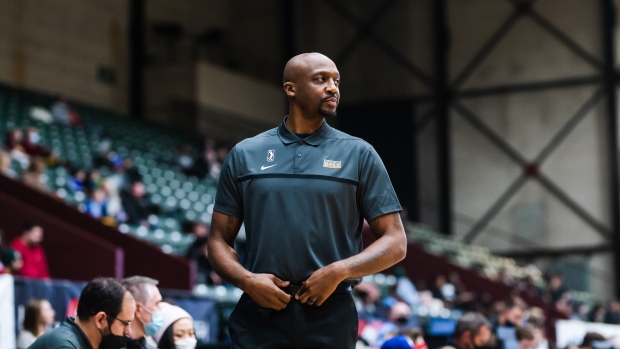
The Shift: I feel like we should start with some of the big news in basketball this week. Your former teammate, Kevin Garnett, had his jersey retired. I saw you sent in a congratulations video, calling him the fiercest competitor, best teammate you ever played with. I want to know, what was it like playing with KG?
Jason Terry: KG’s like a brother to me. Every time you stepped on the floor, whether it was in practice or in a game, you just knew you had a guy that was going to do whatever it took for his team to win. It’s always fun playing with a guy like that. Our relationship went way beyond the court. Like, in life, I could still call him today, and he picks up and it’s like we’re in the locker room talking again. So, just a great guy. A Hall of Fame player, but even more importantly, he’s a Hall of Fame person.
I feel like everyone’s got a wild KG story. I was wondering if you had one to share?
Not really wild, but one day, we were on a road trip and we were supposed to take the team bus to Philly from Brooklyn, and he’s like, ‘Man, meet me at the helipad.’ I’ve never flown on helicopters before, but I’m like, okay, well, I guess this is what we’re doing. Next thing you know, we’re up in a helipad going past the Statue of Liberty, dipping on down into Philly and we actually beat the team bus there. It was just like, wow. Those types of experiences are experiences that I would never have had on my own had I [never met] a guy like KG.
Obviously, I want to talk to you about the Dallas Mavericks too, since you played so much of your career there. I mean, Luka Doncic, one of the best young players in the league straight up, he does it all and even more so since the Kristaps Porzingis trade. What do you see there with the direction of that team?
I think the Dallas Mavericks have a tremendous future. Obviously when you have a cornerstone of the franchise that’s young like Luka Doncic that can do it all on the basketball floor, you know, your future is bright. And then, my good friend Jason Kidd is coaching, so I only know what he’s going to be able to do. I mean, he showed you, when he has a young superstar like he did with Giannis [Antetokounmpo], that those type of players will continue to develop and their games will go to a different level. You’re seeing that now. The sky’s the limit for them this year and on into the future.
So this season, you’ve been coaching with the Grand Rapids Gold of the G League. That team’s really interesting to me because it has a lot of the G League’s veteran players who are looking to get back into the NBA.
I mean, let’s start with Isaiah Thomas, who’s been grinding on that comeback trail for so long. Some 10-days this season and now with Charlotte where he’s playing really well in that rotation. As a coach, how rewarding is that for you to see that happen for IT this season?
For the Isaiah Thomas journey, it’s personal for me. He’s like a brother, and I say that because when he was in sixth grade, he would be shooting baskets in my backyard. Our history, our story, goes way back and all the way up through his high school, his college career. He’s one of my good friends, he’s family. To see the career he had in Boston, and then have the injury and the league kind of push him to the side... For us to give him an opportunity, for him to take the opportunity with Grand Rapids, I mean, it was easy for me. Being a fan of him and then being one of his family members, a brother, watching him perform — like, I even played against IT a couple years.
Now, being a coach and watching him from the sidelines, I get the ultimate joy. You really gotta respect him, because I see the work he puts in and then it translate onto the court. Now that he’s healthy, I could see him playing in the league six, seven more years, and being a vital piece to either a contending championship team or a young team that needs veteran leadership with a young core point guard group that he would be the leader of. I’m just happy for him, I’m ecstatic, and that’s what the G League is all about. The G League is about giving guys an opportunity to see their dreams come true.
I was wondering actually, coaching a team of veterans who are proven and maybe looking to re-establish themselves, but they’ve already done the thing before. For you as a coach, does that change the process at all?
It really doesn’t change the process for me, because with my team and how we’re assembled, we have core values. Our core values are, you know, next man-type mentality. Play together, play hard, have fun. When you breed and create a culture like that of winning, anybody you bring into the mix, they just feel welcome and they come right in and they’re able to contribute. So, I gotta not only give credit to my staff, but to our players. Obviously, it’s a humbling experience to have veteran guys come in and... now he’s here getting minutes, but you still come and be professional and do your job. So, our guys have done a great job with that, and I give them a lot of credit.
I also want to ask you about Nik Stauskas, you know, the Canadian. I mean, the guy dropped 100 points over two games for you guys, and then obviously getting his call up from the Boston Celtics, what was it like to be along for that ride?
Nik’s story as well is personal to me, because I had to convince Nik this summer, like, ‘Look, come play for me. I’mma get you all the shots you need. You know, I was a shooter in the league.’ For him, at this point in his career, he told me, ‘I don’t know, man. Like, I’ve been going at this thing, I haven’t stuck yet. Like, if I do this, this is going to be my last shot.’ So, I just wanted to make sure it’s gone be good, and I said, ‘Man, trust me. One thing I can do is put you in a position where your skills will be showcased.’
[The call-up] didn’t happen for him right away, even though he was top-five or 10 in the [G League] in scoring, top in minutes. But he trusted the process, he kept working, he kept producing and finally got his shot, man. I’m so happy for a guy like that. He’s still young and he still deserves to be in our league.
We always talk about how important it is for players to get opportunities to coach, and especially Black players. I feel like that was a big part of the dialogue last offseason, and I think seven of the eight hires last summer were Black coaches, which felt like things starting to trend the right way. I’m curious, what did you think about that?
Well, obviously, the lack of African American coaches in professional sports as a whole is [concerning] and disappointing. More importantly, my thing is, when you talk about college and when you talk about pros, it’s [about] qualified candidates that haven’t necessarily had the opportunity. There’s a lot of candidates that get jobs that have been recycled through the system, and whether they’ve failed where they were previously or they succeeded, the new candidates don’t get an opportunity. Someone like myself who obviously is a champion, who obviously can excel in these positions, the knock is, ‘You don’t have the experience.’ Well, the only way you can gain experience in anything is life is experience itself.
So, I just needed an opportunity and I’m thankful to the [Denver] Nuggets [and front office executives] Calvin Booth, Scott Howard and Tim Connelly for giving me this opportunity to — like the guys on my roster — showcase my skillset to coach. A lot of times for me, coaching is not about X’s and O’s. It’s more about the relationships you have with your players, getting them to maximize their individual talent within the team concept and take ownership of their own journey. I’ve been able to do that with my staff and I here, and I’m just looking forward to what the future holds.
What’s your goal going forward in the big picture?
Goal big picture is being a head coach, whether it’s in the NBA or [NCAA] Division I head coach. I think that is the immediate goal, and I’m going to keep doing the things that I need to continue my growth and development as a coach, as a leader of these young men. Hopefully, it works out for me.
Lastly, tell me about your new role with FlexIt, and what you’ve got going on over there.
I’m the head of athletic performance here at FlexIt. It’s a great partnership for me, because obviously, in my 19-year career, I was a firm believer in health and wellness. Only way you can do that is if you conditioned your body and trained and had discipline and stuck to it and you had goals for yourself. Now, obviously, I’m three years removed from playing, so it’s hard to get that push. You took it for granted when you played because you always had a personal trainer. Somebody that was there to coach you through the process, motivate you, get you up at 6am, get you in there to do that extra rep.
That’s what the platform for FlexIt does. It provides that gap that you didn’t ordinarily have, and it’s for everybody. You can come out, enjoy the FlexIt platform, and you have a personal trainer there at your needs. Wherever, whenever. Pushing you to get that next rep.

